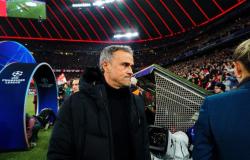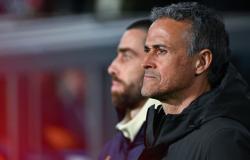Samuel Montembeault is currently going through one of the darkest periods of his career.
His journey with the Montreal Canadiens became a real nightmare, marked by a succession of failures and merciless criticism.
The humiliating defeat against the Seattle Kraken (8-2) still seems to haunt him.
Montembeault not only conceded five goals on fifteen shots in just 21 minutes of play, but his post-match statements also added fuel to the fire.
His comment – “It’s going straight into the trash.” Not even a video. We don’t even look at that. » – was seen by supporters as a sign of abandonment, and the accusation of defeatism was quick to surface.
Montembeault did not collapse so much in the defeats against the Penguins, the Flames and the Devils, but he never made the important save that could save his team.
Social networks, mercilessly, have amplified this perception of a lack of combativeness in the goalkeeper.
Montembeault, who already during his time with the Florida Panthers was accused of not being in optimal physical condition and of letting himself be destabilized by easy goals, today finds himself under heavy fire from criticism.
His passage on waivers by the Panthers, once a simple career episode, is now justified by many.
We must admit that Montembeault does not look like the fittest goalkeeper, both physically and mentally.
The pressure exerted by young prospects like Jacob Fowler and Jakob Dobes does not help his situation.
Fowler, described as the “8th wonder of the world” by his peers and a potential heir to Carey Price, arouses enthusiasm and admiration, qualities that seem to be lacking in Montembeault in the eyes of the Canadiens’ management.
And Fowler’s exceptional start with Boston College only adds pressure on Montembeault’s shoulders.
Kent Hughes, who never hid his interest in alternative options because he never believed in Montembeault, tried unsuccessfully to recruit more talented goalies, including young Yaroslav Askarov and even veteran Marc-André Fleury in the past.
Remember that this summer, the CEO of the CH examined the possibility of bringing in Yaroslav Askarov.
The proposed offer included a first-round pick (that of the Panthers or the Flames) and Filip Mesar, a significant move that really affected the Quebecer’s confidence, even if the Preds preferred the Sharks’ offer.
So many signals which further shake Montembeault, who has never benefited from real support from his organization.
In addition to Askarov, the Canadian also considered calling on Marc-André Fleury last season. The Quebecer, several times Stanley Cup winner, would have represented a symbolic blow for Montembeault, who has never really won over the leaders.
The fact that Hughes is willing to sacrifice a first-round pick to attract another goalie demonstrates the extent to which the Canadiens’ front office does not believe Montembeault is capable of carrying the team in the long term.
In this 2024-2025 season, despite an encouraging start, Montembeault proves his leaders right for never having believed in him.
The Quebecer’s apparent nonchalance in the face of mistakes reinforces doubts about his mentality, which has always been described as weak in Florida.
With the team’s reconstruction underway and the future arrival of talented young goalkeepers, Montembeault’s future in Montreal seems compromised.
With each misstep, voices are raised more and more to demand his replacement. This lack of support from management, combined with unrelenting public pressure, places Montembeault in an extremely fragile position.
He has little time left to demonstrate that he can get back up and convince that his qualities exceed those of the young hopefuls growing up behind him. But while Fowler’s future is brightening, Montembeault’s is getting darker and darker.
The Quebecer will have to fight on all fronts – on the ice, of course, but also against growing distrust and a feeling of rejection from his own club.
Stéphane Waite, the former Canadiens goalie coach, continues to increase public criticism of Montembeault, deeming him insufficient to raise the Canadian to a level of competition worthy of the NHL.
Waite, although distant from the organization, frequently uses his media exposure to question Montembeault’s performance, lamenting his technical shortcomings and lack of consistency, and pleading for a complete change in front of the net.
This situation places Montembeault in an impossible position, where each poor performance is used as justification for his possible replacement.
Montembeault must also face a real psychological war, while management, through its actions, constantly fuels the possibility of installing him as a simple replacement for young goalkeepers in development.
Without forgetting the virulent criticism on social networks, where Montembeault is increasingly called “chokeux”.
Each error, each comment misinterpreted by the media, reinforces the image of Montembeault overwhelmed by the situation.
It is no longer just a simple slump, but a public collapse, orchestrated by management looking for a new face in front of the net.
We have to face reality: Montembeault is only a temporary cog in the Canadian’s reconstruction machine, a thankless role with no way out.
He will end up walking out the door in the near future. This is his destiny.





